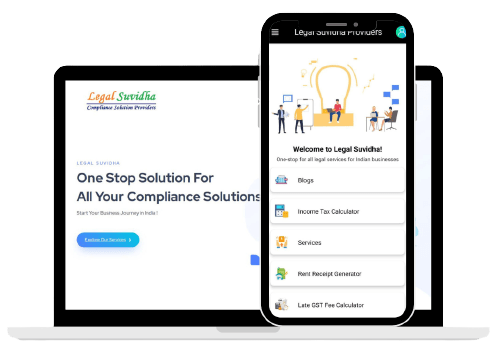5 Essential Legal SaaS Startup Rules: Avoid Penalties Globally
5 Essential Legal SaaS Startup Rules: Avoid Penalties Globally "83% of SaaS Startups Face Legal Action Within First 24 Months"...
A licensing agreement is a legal contract between two parties, where the licensor (owner of a product, technology, or intellectual property) grants the licensee (a person or business) the right to use the licensor’s product, technology, or intellectual property for a specified period of time and under certain conditions.

Happy Clients
Years Experience

Happy Clients
Years Experience
The licensing agreement typically outlines the terms and conditions of the license, including the scope of the license, the rights and obligations of both parties, the payment structure, and any restrictions or limitations on the use of the licensed product or technology.
Licensing agreements are commonly used in many industries, such as software, music, and manufacturing. For example, a software company may license their software to another company for a fee, allowing the other company to use the software for their business operations. A music artist may license their music to a film studio for use in a movie soundtrack.
Licensing agreements can provide many benefits, such as allowing the licensor to generate revenue from their product or technology without having to manufacture or distribute it themselves, while allowing the licensee to access and use a product or technology they may not have otherwise been able to develop or create on their own.
| Market expansion | A licensing agreement allows the licensor to expand its market reach by granting the licensee the right to use and distribute its products or services in new territories or industries. This enables the licensor to tap into new markets without the need for significant investments in infrastructure or operations. |
| Revenue generation | Licensing agreements provide a source of revenue for the licensor through royalty payments or upfront fees. The licensor can monetize its intellectual property by granting others the right to use it, thereby generating additional income streams. |
| Cost savings | For the licensee, a licensing agreement can result in cost savings compared to developing or creating a similar product or technology from scratch. By licensing existing intellectual property, the licensee avoids expenses associated with research, development, and market testing. |
| Risk mitigation | A licensing agreement can help mitigate risks for both parties. The licensor shares the risks associated with market expansion, production, or distribution with the licensee, reducing its own exposure. Similarly, the licensee can mitigate risks by leveraging established intellectual property rather than investing in unproven ideas. |
| Access to expertise | Licensing agreements often provide the licensee with access to the licensor’s expertise, knowledge, and technical support. This can include training, ongoing assistance, or updates related to the licensed intellectual property, enabling the licensee to leverage the licensor’s specialized skills and experience. |
Step 1: Identifying the Intellectual Property: The licensor identifies the intellectual property to be licensed, which may include patents, trademarks, copyrights, trade secrets, or other proprietary information.
Step 2: Negotiating the Terms: The parties negotiate the terms of the licensing agreement, including the scope of the license, payment terms, and any limitations or restrictions on the use of the intellectual property.
Step 3: Drafting the Agreement: Once the terms have been negotiated, the parties draft the licensing agreement. This may involve working with legal counsel to ensure that the agreement is legally binding and protects the interests of both parties.
Step 4: Reviewing and Signing the Agreement: Both parties review the licensing agreement to ensure that they understand and agree to its terms. Once all parties are satisfied, they sign the agreement.
Step 5: Implementation and Monitoring: The licensee begins to implement the licensed intellectual property, and the licensor monitors compliance with the terms of the agreement. This may involve regular reporting, quality control, or other measures to ensure that the licensed intellectual property is being used appropriately.
Step 6: Renewal and Termination: The licensing agreement may have a specific term, after which it can be renewed or terminated. If either party wishes to terminate the agreement early, they must follow the procedures outlined in the agreement.
1. Patent or Trademark Registration
2. License Agreement
3. Non-Disclosure Agreement (NDA)
4. Intellectual Property Assignment Agreement
5. Certificates of Insurance
6. Compliance Reports
Any type of IP can be licensed under a licensing agreement, including patents, trademarks, copyrights, trade secrets, and other proprietary information.
Yes, a licensing agreement can be both exclusive and perpetual, meaning that the licensee has exclusive rights to use the licensor’s IP indefinitely.
Yes, licensing agreements can be terminated early if certain conditions are met, such as breaches of the agreement or changes in market conditions.
After the license term has expired, the licensee is no longer authorized to use the licensed IP unless they negotiate a new licensing agreement with the licensor.
A licensing agreement allows one party to use another party’s IP for a specific purpose or period of time, while a franchise agreement involves a more comprehensive relationship between the franchisor and franchisee, including the use of trademarks, trade secrets, and other proprietary information.
Yes, licensing agreements can be modified or amended if both parties agree to the changes and execute a written agreement reflecting the modifications.
With a commitment to exceeding expectations and a passion for delivering results, choosing us means choosing a partner dedicated to your success.

We provide free of cost consultation and legal advice to our clients.

We are a team of more than 15+ professionals with 11 years of experience.


All our services are online no need you to travel from your place.

There are no hidden & extra charges* other than the quote/invoice we provide.

We aim that all our customers are fully satisfied with our services.

We value your time and we promise all our services are delivered on time.

We provide free of cost consultation and legal advice to our clients.
In this Journey of the past 14+ years, we had gained the trust of many startups, businesses, and professionals in India and stand with a 4.9/5 rating in google reviews.We register business online and save time & paperwork.
Trustindex verifies that the original source of the review is Google. I recently got my trademark registered through Legal Suvidha, and I must say the experience was absolutely seamless. The team was proactive in updating me about every stage of the TM application process and patiently answered all my queries. Highly recommended to any startup or business owner looking for reliable legal and compliance support.Trustindex verifies that the original source of the review is Google. I’ve been working with this firm for the past 3 years, and I couldn’t be more satisfied with their services. Their team has consistently provided accurate, timely, and dependable financial and compliance support. A special thanks to Priyanka and Mayank for their dedication, professionalism, and personal attention to every detail. Highly recommended for anyone looking for reliable services!Trustindex verifies that the original source of the review is Google. I've been working with Priyanka and her team at Legal Suvidha for the past 5 years for my LLP, Adornfx Multimedia. They've consistently provided excellent support, especially with ROC filings. Their service is reliable, timely, and hassle-free. Highly recommended!Trustindex verifies that the original source of the review is Google. I am delighted to share my experience with Legal Suvidha Firm, where professionalism and dedication shine through in every interaction. Having worked with them for the past 3-4 years, I can confidently say that their team is truly exceptional. The commitment they show to their work is truly commendable; they deliver on every promise made without any hint of fraud or dishonesty, which unfortunately is not the case with many firms in the market today. Their integrity sets them apart and gives clients the peace of mind they need when it comes to legal matters or any other certifications. Moreover, I have found their pricing to be very reasonable and reflect the quality of services provided. They offer excellent value for money, ensuring that their clients receive top-notch legal services without breaking the bank. I highly recommend Legal Suvidha Legal Firm without any hesitation. If you’re looking for a reliable legal partner with a dedicated team that truly cares, look no further than Legal Suvidha. My experience has been nothing short of excellent, and I am confident that others will feel the same! For Talin Remedies Pvt Ltd Ravi KumarTrustindex verifies that the original source of the review is Google. One of the easiest firms to work with. Soft-spoken, well aware of their scope of work, and the most affordable (especially for new comers). They're always available to help out giving solutions in the easiest way possible. Got their number from a mentor, and would highly recommend their services if you're looking to start and manage accountancy/compliance related work for your firm!Trustindex verifies that the original source of the review is Google. Mayank & the Legal Suvidha team are fantastic. They really try to understand the business like insiders and don't give you templatized solutions. The staff are extremely supportive and go out of their way to help you. I would recommend Mayank to anybody new to the startup ecosystem!Verified by TrustindexTrustindex verified badge is the Universal Symbol of Trust. Only the greatest companies can get the verified badge who has a review score above 4.5, based on customer reviews over the past 12 months. Read more


Explore more of our blogs to have better clarity and understanding
of the latest corporate & business updates.
5 Essential Legal SaaS Startup Rules: Avoid Penalties Globally "83% of SaaS Startups Face Legal Action Within First 24 Months"...
5 Essential AI Usage Policy Steps for Startups (+Free Template) "87% of Startups Using AI Face Legal Blind Spots -...
Avoid Costly Penalties: 2025 Data Transfer Compliance Checklist 85% of Indian Businesses Aren’t Ready for This Data Regulation Tsunami India’s...
7 Essential AI Compliance Readiness Strategies to Avoid Penalties "62% of Indian Businesses Face Regulatory Action Due to Poor AI...
5 Critical Open Source Compliance Do’s and Don’ts (Avoid Legal Blunders) “83% of Companies Use Open Source Code Without Proper...
5 Critical Differences: Convertible Notes vs. CCDs in 2025 (Tax Risks) "78% of Startups Face Penalties for Mismanaging Convertible Debt"...
Here are some answers to potential questions that may arise as you start your business.
Register your business, obtain necessary licenses, and fulfill tax obligations.
Consider factors like ownership, liability, and tax implications to choose from options like sole proprietorship, partnership, or company registration.
Choose a unique business name, obtain required IDs like Director Identification Number (DIN), and file incorporation documents with the Registrar of Companies (ROC).
Obtain GST registration, trade licenses, and any industry-specific permits required to operate legally.
Maintain accurate financial records, file tax returns on time, and adhere to the tax laws applicable to your business.
Yes, startups in India can benefit from various government schemes offering tax exemptions, funding support, and incubation facilities.
Secure patents, trademarks, or copyrights to safeguard your intellectual assets from infringement or unauthorized use.
Challenges include navigating bureaucratic hurdles, complying with complex regulations, and competing in a crowded marketplace.
Looking For More Information? Contact Us
Sign up to receive email updates on new product announcements, special promotions, sales & more.
Redefining the experience of legal services. Now all Professional Services in a Single Click !


Copyright © 2025 Legal Suvidha Providers LLP. All rights reserved.
